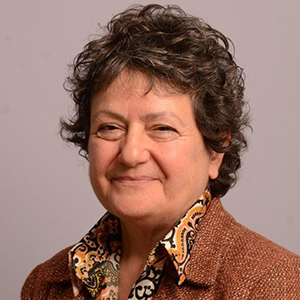With over 6.5 million carers across the UK, Lisa Smith, Research and Development Manager at Research in Practice for Adults (RiPfA), believes we need to make supporting this unpaid workforce a priority. RiPfA has been examining current social work practice and talking to carers about the changes needed, as part of a project commissioned by the Department of Health.

This week is Carers’ Week, and it seems that there is no better time to announce a whole new set of tools and resources to support social work practice with carers.
The Department of Health commissioned us at the start of 2016 to develop these, and we have worked with Carers UK and the Carers Trust to recruit a group of carers to co-produce the materials. The development process included two workshops with this group, the first to get their ideas and experience written up into case studies, and then to review the materials we produced to make sure that it reflected their lived experience.
As well as producing some fantastic resources, being involved in the workshops had some surprising benefits for individual carers. People felt that they learned a lot from each other and went away feeling valued and that their voice had been heard. One person told us they felt their involvement in developing the resources had had a very positive effect on their caring role. Having the opportunity to speak, be heard and their voice embedded in a resource seems to have had a positive impact.
At the second workshop we asked if people might like to be filmed, talking about what they feel good social work practice should look like. The messages that we heard repeated again and again were: ‘listen to me’; ‘read the case notes before you come to visit’; ‘view us carers as an asset’; ‘don’t promise to do something that you can’t deliver’; and ‘answer my phone calls, emails’.

The desire to work collaboratively with professionals was very strong, and what struck me from hearing those voices is that these are all relatively little things that people want. It’s what we’d all want or need in any interaction, to be heard, to feel listened to and to be seen as a whole person.
Watch the film for an insight into personal experiences of being a carer.
It has been a pleasure and a privilege to work with this group of carers to develop these tools. Each person was really committed, generously donating their time to enable the development of tools to support other carers. I learned a huge amount, and the resources are so much richer for having carer input from the start, as well as the group reviewing the materials once they were developed.
There are over 6.5 million people across the UK in a caring role and we have a clear responsibility to look after this unpaid workforce. These resources are intended to enhance understanding of the issues that carers are facing and experiencing, and provide guidance on how to work with them, not only to enable them to meet the various demands and challenges of being a carer, but also to support their physical and emotional wellbeing.
The Department of Health is making supporting carers a priority because they believe that ‘caring for others should not be to the detriment of the carer’s own health and wellbeing’ and that there is more we can all do to ensure this. To help with this work they are carrying out a survey to gather the views of carers, those who have someone caring for them, social workers and other professionals supporting carers. Take part in the survey to help inform their strategy to support carers.
7 comments
Comment by Pearl baker posted on
I met with yet another Carer of a Disabled daughter. The daughter has Cerebral palsy, epilepsy, vertigo, and one other disability that escapes me, a single mother, experiencing financial distress, the GP said she was 'fit for work' lost her job, and finally evicted by the Housing Association. This very vulnerable woman was left with no alternative than to move in with undesirables, who took all her money, and physically abusing her, has suffered broken nose, ribs, and much more. The son is now living with the Grandmother, who eventually suffered a breakdown herself, and admitted to Hospital.
I want to know how this can happen, when everything is supposed to be getting better for Carers?
There has to be an emergency help center where Mother daughter and son can receive immediate help.
Comment by Laura Graham posted on
A timely article. I am a carer and am appalled by the way carers are treated by social workers. Please do read my experiences here - http://www.independentliving.co.uk/carers-voice/carers-week-so-whats-new/
Happy to discuss!
Comment by Toxicpotato posted on
So how are sw etc going to work collaboratively because today for example there is a meeting with the mdt team and service providers to carve up contracts. The service user and carer taper not invited. To whom do I complain?
Comment by Jane posted on
The comments about the second workshop made by Carers 'listen to me, read case notes, reply to communications show just how poor the service can be. If this professional considers these to be 'little things' then it shows just how out of touch they (social services) have become. These are not little things they are the core to providing a consistent, safe and committed support to vulnerable people. These are things which should not be asked for they should be part and parcel of every social workers daily working practices. Do they really need to be told to listen to and work with Carers? Doesn't this prove that Carers have NOT been taken seriously, we are at times treated as a nuisance by social workers who want to rigidly follow the 'system' when they can see that one size does not fit all!
Comment by Lisa posted on
Dear Jane,
I absolutely agree that these are by no means little things for a carer to experience. Someone listening, someone making time and someone making the effort to check in are huge things for a carer who is trying to cope with multiple demands and who needs a bit of support. My message here is to social workers - that these things are actually simple things for social workers to be able to deliver as part of their everyday workload without requiring lots of extra time, paperwork, or particular effort. They are absolutely achievable. In the current environment of tight budgets and big systemic challenges for social care, it is easy to get bogged down by the magnitude of change that is needed and consequently caught up in a rhetoric of ‘but we can’t deliver wholesale change because we don’t have the money or the resources’. Although it is easy to get overwhelmed by the bigger picture, what came across loud and clear from our discussions with carers, was that if we focus on the smaller things that are within our power to deliver, these things, small as they seem, have a big impact.
Comment by Karen posted on
It's about time the local authorities knew the Carers Act better than carers do! We end up doing the SW jobs for them, ask any questions and it seems nobody knows the answers. When are they going to do their job description? They have policies and procedures to FOLLOW! So follow them, don't try and pull the wool over our eyes, we are not going to go away! If they have to be told to listen to us, that is a very sad state of affairs! How can they do any assessment if they don't listen? Putting people at risk, safeguarding etc etc.
Some of us who work as well as care, and pay our taxes, pay their wages, so don't look down on those that feed you!
To listen to us, answer us, and do your job is not a small thing it's a HUGE thing...come and spend a week in our shoes, then you will see how much stress you cause us...chasing chasing chasing, doing their job for them, filling out paperwork for them, informing them when they are breaking the law....and it goes on and on and on.
WHEN is somebody going to wake up and smell the coffee, how many of us have to tell you, or maybe nobody is listening again?
How much has been published since the new Carers Act of how things are going badly wrong, yet still nothing is done!
Comment by Linda Timmins posted on
I would love to feel stress free and enjoying my life as someone should when they retire. 14 years into retirement and now 72 I have all but given up on any earlier plans that were made
post retirement. My priority has to be for my stepfather who lives alone at 89yrs old with vascular dementia. He has serious short term memory problems which he would not be able to cope without my help. Dad has no other family to help which in turns causes difficulties for myself. Dad does want to stay in his own home and would not be happy in a care home and would quickly fade away if constrained. My husband feels second best and causes arguments when I have to spend more time away looking after my stepdad. I feel frustrated when I seem to be pulled both ways. Dad is a lovely human being and is always grateful for my help but I know my own life is on hold and could be for a time yet as his family lived for many years. I hope that the government will be sincere in helping carers to enjoy their short life span too because the health of us and those of whom we care for should be a priority. My heart goes out to those carers who are not strong enough to cope on a day to day basis but they can only do their best. In addition many of us older carers have other caring responsibilities I myself juggle to look after the affairs of my sister & brother-in-law both of whom are in care homes. So looking after the affairs of all 4 of us takes its toll. We the carers of this country need that recognition of what savings we make to this government. Give us our lives back with help.